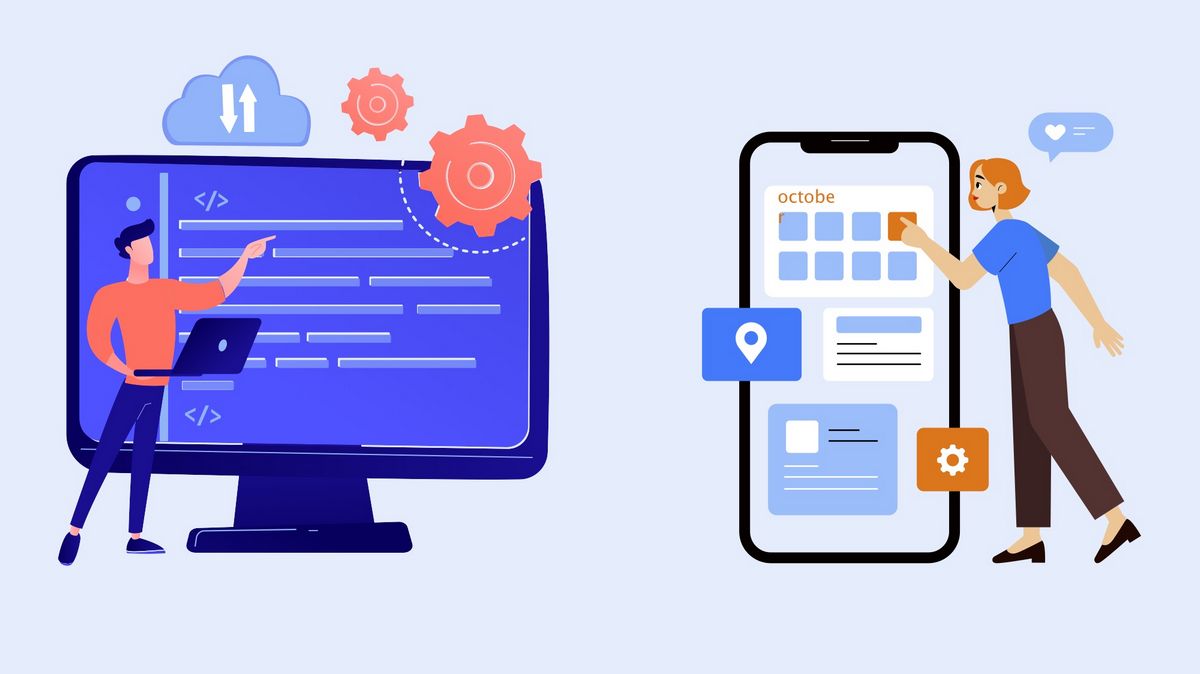
Should You Build a Mobile App or a Website for Your Startup?
Website, web app, or mobile app—what is the right "form" for your business idea?
Since the release of the first iPhone, the mobile-first business model has been treated as the new gold rush. However, some argue that the modern user experiences app fatigue and tends to use only three apps at most, making it easier to compete for desktop attention.
As a new business owner, you may be overwhelmed by the choice. Will your product serve better as a mobile app (providing a better mobile experience but needing installation and being easily deletable), or a web app (accessible at any time but less user-friendly on handheld devices)?
Some high-profile businesses have invested heavily in their "mobile-first" experience, while others have chosen to stick with the web app version.
In this post, we’ll specifically discuss cases when you should build a mobile app or a web app.
1. What is your product goal?
To clarify your goals and next steps, validate your idea and research your target market and their online behavior.
Consider launching a minimal viable product (MVP) to test the grounds before investing in a full version. Conduct customer interviews and market research to gather critical information.
Consider your budget, your competitors’ choices, and your target market’s preferences when deciding between a mobile app and a web app.
Use data, such as Google Analytics, to understand your customers’ behavior and identify opportunities for a mobile app. For example, if mobile users frequently visit promos or coupon pages, consider building a separate loyalty mobile app.
Gather statistics about your current customers and leverage the data to optimize your app or website.
2. Does your idea assume real-time information delivery?
Humans seek immediate access to timely information. Consider if your product can offer real-time access to data and immediate value.
For instance, if you plan to build an event guide, a mobile app can notify users about nearby events in real-time, offer guided navigation, provide on-spot promo offers, and facilitate connections with friends attending the same event.
If your product can benefit from connecting users with real-time information, a mobile app is a better choice. A website or web app can be a secondary step to reach a larger market.
3. Does your product assume or encourage frequent daily use?
If users will interact with your product multiple times a day, building a mobile app is simpler and more convenient. Consider products like note-taking apps, to-do lists, social media, games, tracking apps, maps, and transportation apps.
However, consider the situational uses of your product. For products requiring longer term interactions (over an hour per day), a web app would be preferable.
4. Do you need access to the phone’s native features?
Consider if your users will benefit from information based on their current location or if you plan to use features like the camera, gyroscope, or sensors. If yes, a native mobile app is a better choice.
Building a mobile app allows you to leverage features that may not be available or as stable on a web app.
5. Do you think people will use your product offline?
Consider whether users may need to access your product offline, such as when traveling or in areas with weak connection signals.
Mobile apps can offer offline functionality, allowing users to navigate, access information, or interact with the app even when there is no internet connection.
6. What are your budgets?
Building a website, mobile app, or full-featured web app each have their own budget considerations.
The cost of building a full-featured mobile app for one platform ranges from $37,913 to $171,450. A mobile app MVP can cost between $5,000 and $15,000.
A web application development cost ranges from $10,000 to $150,000. Building a mobile website generally costs $5,000 to $12,000.
Consider the pros and cons of outsourcing application development, and think about the situational uses of your product to determine the most suitable budget allocation.
Ultimately, consider your customer’s needs and desires when making the decision and commissioning the project.
Hello!
I’m Andrew Brooks, a seasoned finance consultant from the USA and the mind behind phonenumber247.com.
My career is built on a foundation of helping individuals and businesses thrive financially in an ever-changing economic landscape. At phonenumber247.com, my aim is to demystify the complex world of finance, providing clear, actionable advice that can help you navigate your financial journey with confidence. Whether it’s personal finance management, investment strategies, or understanding the nuances of market dynamics, I’m here to share insights and tools that can propel you towards your financial goals.
Welcome to my digital space, where every piece of advice is a step closer to financial clarity and success!
